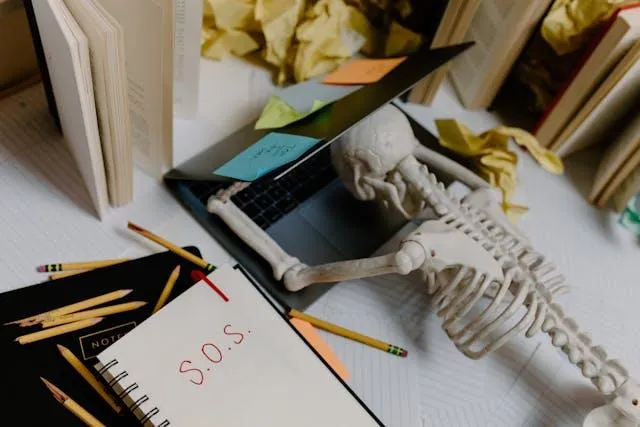
Neglecting our need for rest could lead to serious repercussions, from chronic fatigue and anxiety to weakened immune responses.
Image: Anna Tarazevich/pexels
It’s that time of year again when we’re caught between tying up loose ends and trying not to tie ourselves in knots.
The final months often feel like a mad sprint: deadlines at work, family demands, exams, school runs and the constant hum of WhatsApp groups.
No wonder so many of us arrive at December utterly depleted.
If you’re feeling that heavy brain fog, the short fuse, the constant tiredness that even a weekend lie-in doesn’t fix, you’re not alone.
Burnout is real, and it’s more common than we think. The World Health Organisation has officially classified burnout as an “occupational phenomenon”, warning that unchecked stress can lead to exhaustion, negativity and lower productivity.
But here’s a thought worth holding onto: maybe the antidote isn’t doing more or pushing through, it’s learning to rest better.
When we think of “rest”, we usually think of “sleep”. But according to Dr Saundra Dalton-Smith, a US-based physician and author of Sacred Rest, sleep alone won’t cut it.
Her research highlights seven types of rest we all need to keep burnout at bay: physical, mental, sensory, creative, emotional, social, and spiritual rest.

Burnout is a pressing concern, one that the World Health Organisation has now officially acknowledged as an "occupational phenomenon.
Image: Tara Winstead/Pexels
A nap is nice, but if you’re still waking up tired, you might be missing one of the other six.
1. Physical Rest: This is the rest we know best: sleep and downtime. But it’s not just about crashing on the couch. Dalton-Smith suggests adding active rest, like yoga, stretching, or gentle walking, to keep your body flexible and circulation healthy.
Research in the Journal of Occupational Medicine shows that even light physical activity helps combat fatigue better than pure inactivity.
2. Mental Rest: Ever tried to sleep but your brain won’t stop replaying the day? That’s referred to as a mental rest deficit.
Scheduling small brain breaks during your workday, five minutes away from your desk, deep breathing, and jotting down your swirling thoughts can help reset your mind.
Neuroscientists at the University of California, Irvine, found that short breaks boost concentration by up to 20%.
3. Sensory rest: Between glaring screens, buzzing notifications and endless Zoom calls, our senses rarely get a break. Intentionally unplugging, like closing your eyes briefly, turning off your phone for an hour, or dimming lights in the evening, can do wonders.
A 2020 study in Frontiers in Psychology found that reducing sensory input helped lower anxiety and improve mood.
4. Creative rest: Many of us run dry creatively because we never pause to refill. Creative rest can be as simple as stepping outside, listening to music, or surrounding yourself with art you love. It’s about reigniting that sense of wonder.
Researchers at the University of Utah found that spending time in nature boosts creativity by up to 50%.
5. Emotional rest: Ever feel like you’re “on” for everyone else but can’t be honest about how you feel? Emotional rest is about being able to drop the mask. Say “no” when you want to. Tell a friend you’re not okay. Permit yourself to feel all your feelings without guilt.
The American Psychological Association highlights that people-pleasing is a fast track to chronic stress.
6. Social rest
This one’s tricky. Not all social interactions drain you; some fill you up. Notice who leaves you feeling lighter, and who leaves you tense. Prioritise those uplifting connections, even virtually. Social rest doesn’t mean isolation; it means surrounding yourself with people who support you.
7. Spiritual rest
You don’t have to be religious to find spiritual rest. It’s about feeling connected to something bigger than your to-do list. Meditation, prayer, volunteering, or simply reflecting on your purpose can bring a sense of calm that daily chores can’t touch.
Studies, like those published in "The Journal of Positive Psychology", show spiritual practices help reduce stress and improve overall life satisfaction.
It can feel unproductive to slow down, especially now, as work and family demands spike toward year‑end. But ignoring rest can have real consequences, from chronic fatigue to anxiety and even weakened immunity.
According to the South African Depression and Anxiety Group (SADAG), burnout and stress-related mental health challenges are on the rise, particularly at this time of year.
Calm, the mindfulness app trusted by millions, reminds users daily that rest isn’t optional, it’s an investment in your wellbeing. And as research shows, it’s the quality, not just the quantity, of our rest that keeps us balanced.
FAST COMPANY
